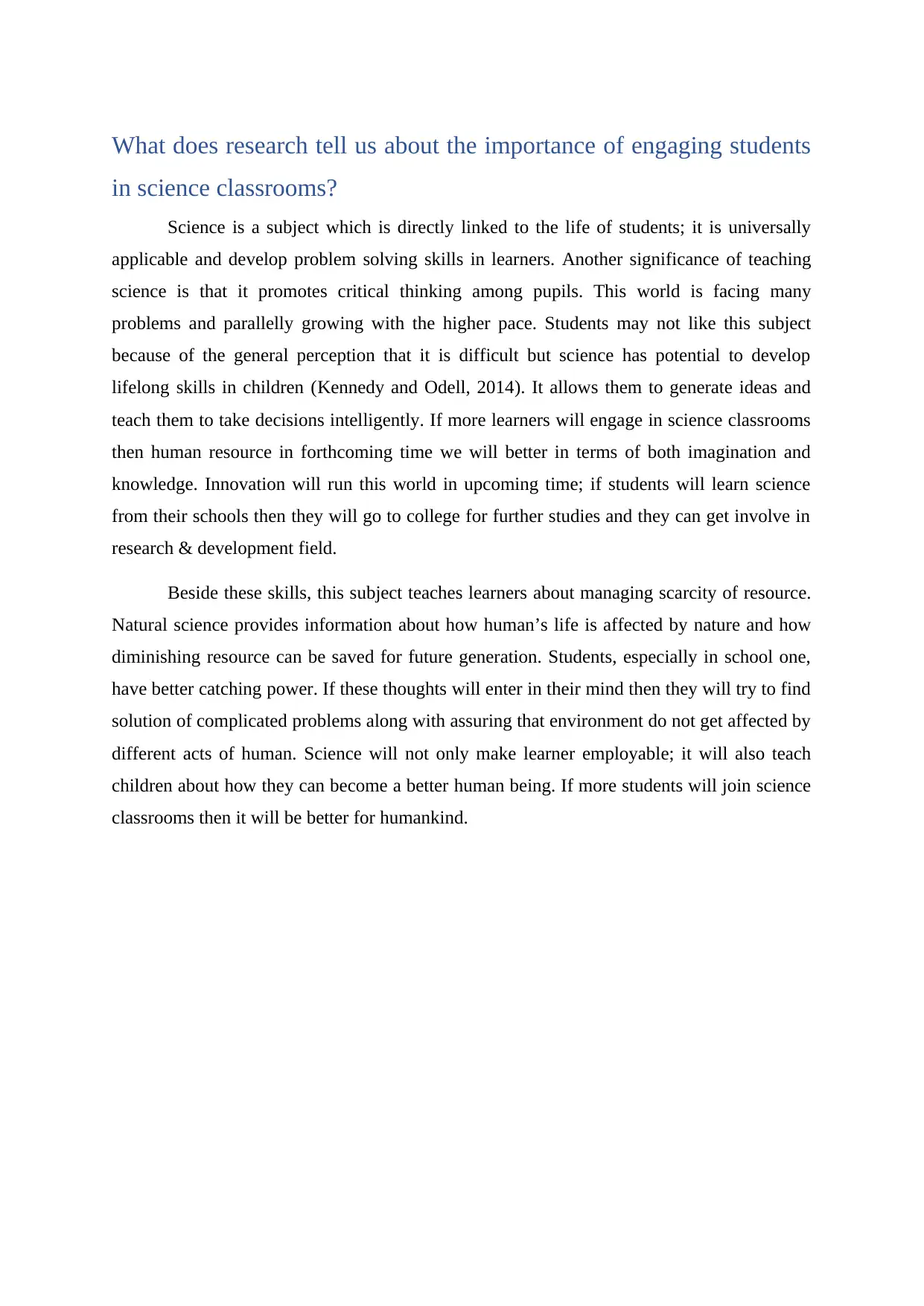Research on Engaging Students in Science Classrooms
VerifiedAdded on 2023/01/10
|3
|328
|49
Homework Assignment
AI Summary
This assignment delves into the significance of engaging students in science classrooms. It highlights the importance of science education in developing problem-solving skills and fostering critical thinking. The assignment emphasizes that science is directly linked to the life of students, making it universally applicable. The assignment suggests that more engagement in science classrooms will lead to a better human resource in the future, particularly in terms of innovation and research & development. It also points out the role of science in teaching students about managing resources and becoming better human beings. The assignment references a study that discusses the benefits of engaging students in STEM education. This assignment is intended to provide insights into how to improve science education and encourage more students to participate in science.
1 out of 3










![[object Object]](/_next/static/media/star-bottom.7253800d.svg)